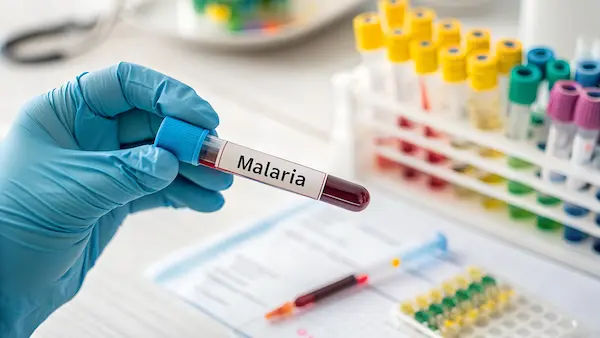Zika Virus Overview and Treatment Options
Learn about the Zika virus, including its common symptoms, how it spreads, and potential health risks. Explore current treatment options, preventive measures, and what to do if you suspect a Zika infection.

Written by Dr. M L Ezhilarasan
Reviewed by Dr. Shaik Abdul Kalam MD (Physician)
Last updated on 25th Aug, 2025

Introduction
The Zika virus is a mosquito-borne infection that has gained attention in recent years due to its potential health risks, especially for pregnant women and unborn babies. While many people infected with Zika may not experience severe symptoms, it’s important to understand the virus, how it spreads, and how to protect yourself.
In this article, we’ll cover:
- What Zika virus is
- Symptoms and how it spreads
- Who is at higher risk
- Prevention and treatment options
- When to seek medical help
What Is the Zika Virus?
The Zika virus is primarily transmitted through the bite of an infected Aedes mosquito, the same type that spreads dengue and chikungunya. It was first identified in Uganda in 1947 but has since spread to tropical and subtropical regions, including parts of Africa, Asia, the Americas, and the Pacific.
Most people who get infected with Zika either have no symptoms or only mild ones. However, the virus can cause serious complications, particularly for pregnant women, as it has been linked to birth defects like microcephaly (a condition where a baby’s head is smaller than expected).
Consult a Top General Physician for the best advice
Symptoms of Zika Virus Infection
Many people with Zika don’t realize they have it because symptoms are mild or absent. When symptoms do appear, they usually begin 3 to 14 days after a mosquito bite and may include:
- Mild fever
- Rash
- Joint or muscle pain
- Red eyes (conjunctivitis)
- Headache
- Fatigue
These symptoms typically last for a few days to a week and rarely require hospitalization. However, Zika can sometimes lead to Guillain-Barré syndrome (a rare neurological disorder causing muscle weakness) in adults.
How Does Zika Spread?
The primary way Zika spreads is through mosquito bites, but it can also be transmitted in other ways:
- From mother to baby during pregnancy – This can lead to serious birth defects.
- Through sexual contact – The virus can remain in semen for months, so safe practices are important.
- Through blood transfusion – Though rare, Zika can spread via infected blood.
Who Is at Higher Risk?
While Zika can affect anyone, certain groups need to take extra precautions:
- Pregnant women – The virus can cause severe birth defects, so avoiding travel to Zika-affected areas is crucial.
- People living in or traveling to tropical regions – Areas with Aedes mosquitoes pose a higher risk.
- Partners of pregnant women – Men who have been exposed to Zika should use protection during sex to prevent transmission.
Diagnosis and Treatment Options
If you suspect you have Zika, especially if you’re pregnant or have travelled to a high-risk area, consult a doctor.Diagnosis is usually done through blood or urine tests.
Currently, there is no specific antiviral treatment for Zika. Most cases are managed with:
- Rest
- Plenty of fluids
- Over-the-counter pain relievers (avoid aspirin until dengue is ruled out)
If you’re pregnant and have been exposed to Zika, your doctor may recommend additional monitoring and ultrasounds to check the baby’s development.
Prevention: How to Protect Yourself
Since there’s no vaccine for Zika, prevention is key. Here’s how you can reduce your risk:
1. Avoid Mosquito Bites
- Use EPA-approved insect repellents (containing DEET, picaridin, or oil of lemon eucalyptus).
- Wear long-sleeved shirts and pants in mosquito-prone areas.
- Use mosquito nets if sleeping outdoors or in areas without screens.
- Eliminate standing water (mosquitoes breed in stagnant water).
2. Safe Sexual Practices
If you or your partner have travelled to a Zika-affected area, use condoms or abstain from sex for at least 3 months (for men) or 2 months (for women).
3. Travel Precautions
- Pregnant women should avoid travel to areas with active Zika outbreaks.
- Check travel advisories before planning trips to tropical regions.
When to See a Doctor
Seek medical advice if:
- You develop Zika symptoms after traveling to a high-risk area.
- You’re pregnant and may have been exposed to Zika.
- You experience severe symptoms like persistent fever, weakness, or neurological issues.
Final Thoughts
While Zika virus infections are usually mild, the risks to pregnant women and unborn babies make it a serious concern. By taking preventive measures, such as avoiding mosquito bites, practicing safe sex, and staying informed about travel risks, you can protect yourself and your loved ones.
Consult a Top General Physician for the best advice
Consult a Top General Physician for the best advice

Dr. Swathi Reddy Perugu
General Physician/ Internal Medicine Specialist
7 Years • MBBS, MD (General Medicine)
Hyderabad
Health plus, Hyderabad

Dr. Rajib Ghose
General Practitioner
25 Years • MBBS
East Midnapore
VIVEKANANDA SEBA SADAN, East Midnapore

Dr Rajashree Dhongade
General Physician/ Internal Medicine Specialist
9 Years • MD.Medicine,Fellowship in Critical Care Medicine (MUHS)
Nashik
Apollo Hospitals Nashik, Nashik
(25+ Patients)

Dr. Sandhya Chandel
General Physician/ Internal Medicine Specialist
16 Years • MBBS, MD (Int. Med.), IDCCM
Bilaspur
Apollo Hospitals Seepat Road, Bilaspur
(100+ Patients)

Dr. Ramya Hari
General Practitioner
18 Years • Medical Head & Family Physician, DG Shipping Approved Doctor, Panel Physician - UK Visa Medicals
Chennai
Apollo Medical Centre Kotturpuram, Chennai
Consult a Top General Physician for the best advice

Dr. Swathi Reddy Perugu
General Physician/ Internal Medicine Specialist
7 Years • MBBS, MD (General Medicine)
Hyderabad
Health plus, Hyderabad

Dr. Rajib Ghose
General Practitioner
25 Years • MBBS
East Midnapore
VIVEKANANDA SEBA SADAN, East Midnapore

Dr Rajashree Dhongade
General Physician/ Internal Medicine Specialist
9 Years • MD.Medicine,Fellowship in Critical Care Medicine (MUHS)
Nashik
Apollo Hospitals Nashik, Nashik
(25+ Patients)

Dr. Sandhya Chandel
General Physician/ Internal Medicine Specialist
16 Years • MBBS, MD (Int. Med.), IDCCM
Bilaspur
Apollo Hospitals Seepat Road, Bilaspur
(100+ Patients)

Dr. Ramya Hari
General Practitioner
18 Years • Medical Head & Family Physician, DG Shipping Approved Doctor, Panel Physician - UK Visa Medicals
Chennai
Apollo Medical Centre Kotturpuram, Chennai
.webp)


